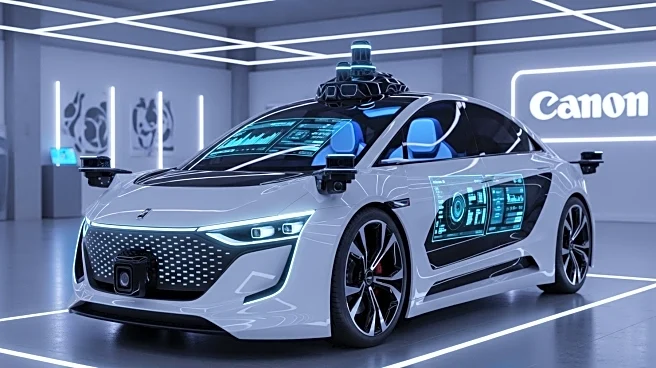What's Happening?
Tesla is preparing to release its Full Self-Driving (FSD) version 14, following a brief delay announced by CEO Elon Musk. The new version is expected to bring significant improvements over the current version 13, which has been praised for handling complex driving tasks effectively. However, there are several areas where FSD still struggles, including navigation, lane usage, and parking. Users have reported issues with the navigation system, particularly in choosing logical routes and avoiding illegal maneuvers. Additionally, FSD tends to cruise in the left lane on highways, which is illegal in many states unless overtaking. Parking remains a challenge, with the system often failing to park accurately without manual intervention.
Why It's Important?
The release of FSD v14 is significant for Tesla as it continues to push the boundaries of autonomous driving technology. Improvements in navigation and lane usage are crucial for achieving unsupervised driving, a key goal for Tesla. These enhancements could increase consumer confidence in Tesla's autonomous capabilities and potentially accelerate the adoption of self-driving technology. However, persistent issues could impact Tesla's reputation and its ability to meet regulatory requirements for autonomous vehicles. The success of FSD v14 could influence Tesla's market position and its ability to compete with other automakers investing in autonomous technology.
What's Next?
As Tesla rolls out FSD v14, the company will likely monitor user feedback closely to address any remaining issues. Future updates may focus on refining navigation algorithms and improving lane discipline to comply with traffic laws across different states. Tesla's ability to resolve these challenges will be critical in advancing towards fully autonomous driving. Stakeholders, including regulators and consumers, will be watching closely to see how Tesla addresses these concerns and whether FSD v14 meets the high expectations set by previous versions.
Beyond the Headlines
The development of FSD v14 raises broader questions about the ethical and legal implications of autonomous driving technology. As Tesla and other companies advance towards unsupervised driving, issues such as liability in the event of accidents and the impact on employment in driving-related industries will become increasingly important. The evolution of autonomous technology also prompts discussions about privacy and data security, as vehicles become more connected and reliant on data-driven systems.










